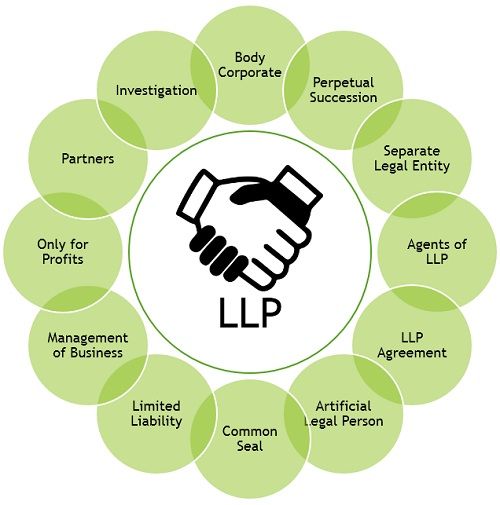Limited Liability Partnerships(LLP)
A Limited Liability Partnership LLP is a partnership in which some or all partners or members have limited liability. It, therefore, exhibits elements of corporations and partnerships. In a Limited Liability Partnership (LLP), one partner is not liable or responsible for another partner’s negligence or misconduct. This is an important difference from that of an unlimited partnership of companies or agency. In an LLP, some partners have a form of limited liability, similar to that of the shareholders of a corporate business. In some countries, an LLP must also have at one General Partner with unlimited liability on it.

Features of an LLP
A Limited Liability Partnership is a body corporate and legal entity separate from its partners. It has perpetual succession.
Being the separate legislation i.e. LLP Act, 2008, the provisions of Indian Partnership Act, 1932 are not applicable to a Limited Liability Partnership and it is regulated by the contractual agreement between the partners.
Every LLP shall use the words “Limited Liability Partnership” or its acronym “LLP” as the last words of its name.
Every Limited Liability Partnership shall have at least two designated partners being individuals, at least one of them being resident in India and all the partners shall be the agent of the LLP but not of other partners.

Need for LLP
For a long time, a need of LLP has been felt to provide for a business format that would combine the flexibility of a partnership and the advantages of limited liability partnership (LLP) of a company at a low compliance cost or Revenue.
